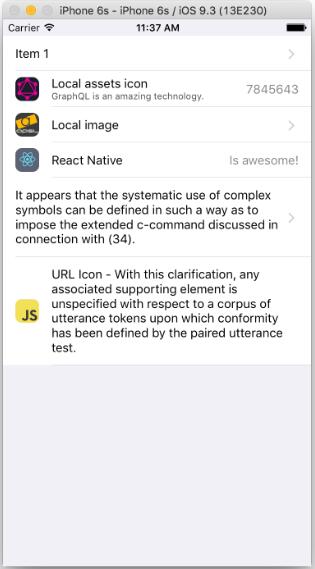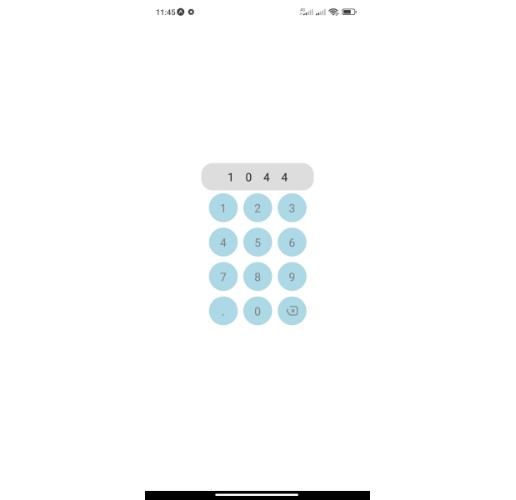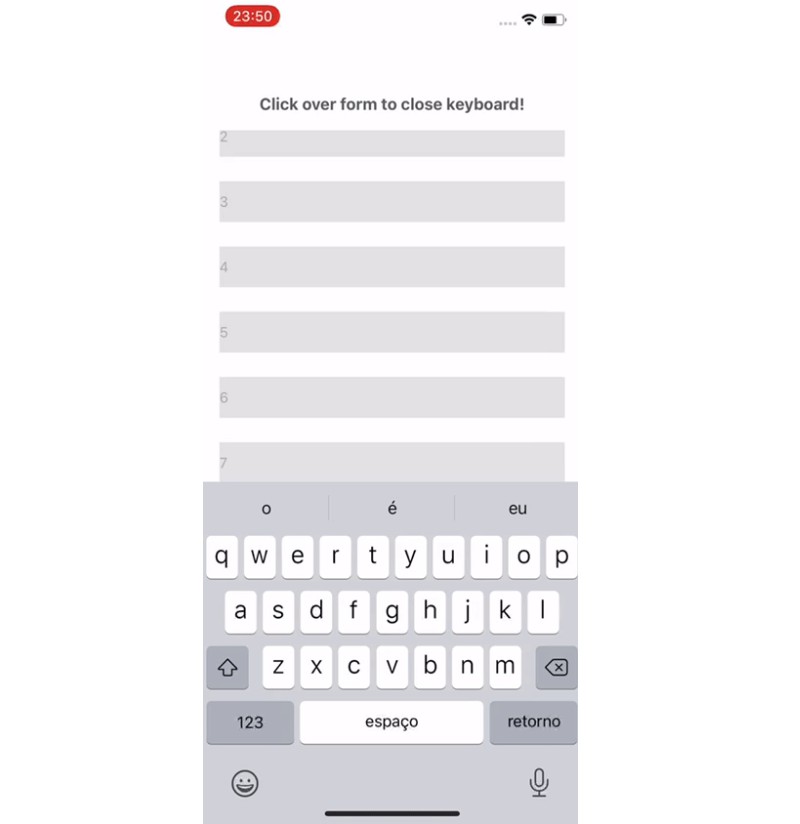React-Native Keyboard Manager
This library allows to prevent issues of keyboard sliding up and cover on React-Native iOS projects⚛. Thanks to awesome IQKeyboardManager
This is only for iOS, Android no needed. For Android just add android:windowSoftInputMode="adjustResize" to your activity.
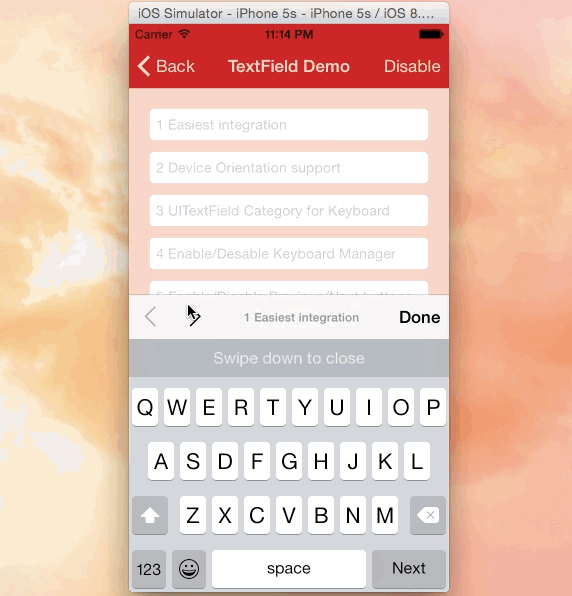
Requirements
- React Native >= 0.40.0
- iOS >= 8.0
Use
It does not need any library setup to work, just install and go.
But, if you need some configuration, there are some options available. (with default values)
import KeyboardManager from 'react-native-keyboard-manager'
KeyboardManager.setEnable(true);
KeyboardManager.setEnableDebugging(true);
KeyboardManager.setKeyboardDistanceFromTextField(10);
KeyboardManager.setPreventShowingBottomBlankSpace(true);
KeyboardManager.setEnableAutoToolbar(true);
KeyboardManager.setToolbarDoneBarButtonItemText("Ok");
KeyboardManager.setToolbarManageBehaviour(0);
KeyboardManager.setShouldToolbarUsesTextFieldTintColor(false);
KeyboardManager.setToolbarPreviousNextButtonEnable(false);
KeyboardManager.setShouldShowTextFieldPlaceholder(true);
KeyboardManager.setOverrideKeyboardAppearance(false);
KeyboardManager.setShouldResignOnTouchOutside(true);
KeyboardManager.resignFirstResponder();
KeyboardManager.isKeyboardShowing()
.then((isShowing) => {
// ...
});
For more details, see the official IQKeyboardManager documentation.
Install
- Install dependency package
npm i -S react-native-keyboard-manager
- Link the native project
react-native link react-native-keyboard-manager
-
(Optional) If you want to use Next/Previous buttons, link the IQKeyboardManager resources to your Xcode project.
-
Open your Xcode project
-
Got to folder your-project/node_modules/react-native-keyboard-manager/ios/IQKeyboardManager/
-
Drag and drop the Resources folder to your project root. (If you already have Resources group, drag and drop the IQKeyboardManager.bundle)
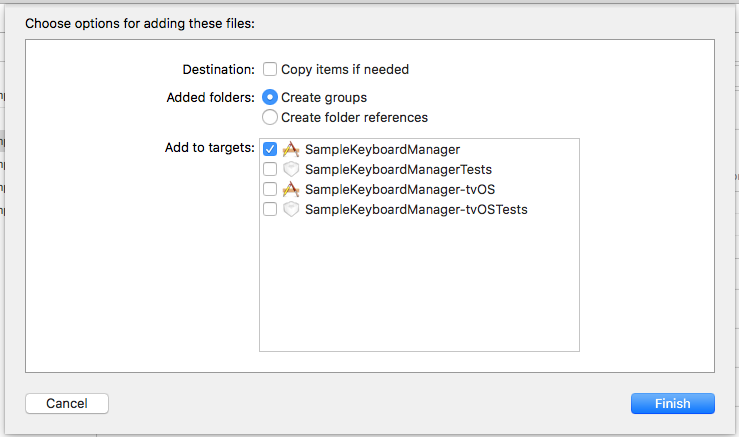
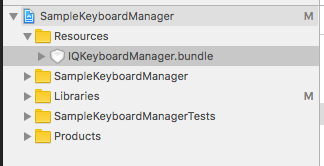
-
In your
index.ios.jsjust callKeyboardManager.setToolbarPreviousNextButtonEnable(true);.
-

